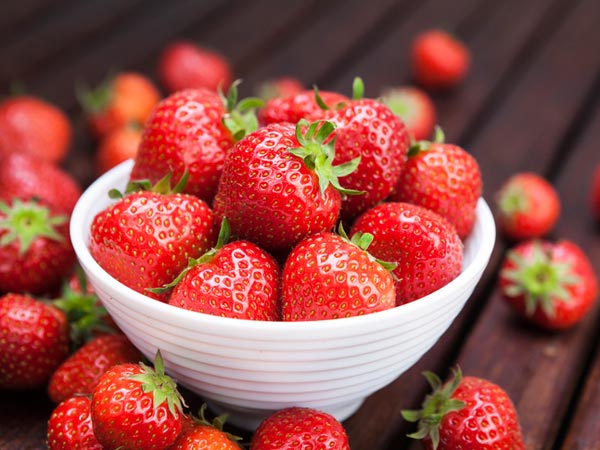Vitamin C, or ascorbic acid, is a water-soluble vitamin well known for its role in supporting a healthy immune system. Because your body cannot make vitamin C, it must come from the foods you eat every day. 
Research shows vitamin C is essential for the growth and repair of tissue all over the body. Vitamin C helps heal wounds and repair and maintain healthy bones, teeth, skin and cartilage — a type of firm tissue that covers the bones. As an antioxidant, vitamin C fights free radicals in the body which may help prevent or delay certain cancers and heart disease and promote healthy aging. Vitamin C from foods also seems to reduce the risk of cartilage loss in those with osteoarthritis.
Though it may not keep you from catching a cold, there is some evidence that high doses of vitamin C may decrease the length of cold symptoms by as much as one to one-and-a-half days for some people. However, other studies did not result in the same findings, and the risk of side effects is greater with high doses of vitamin C supplements, so check with your doctor or registered dietitian nutritionist before taking.
Sources of vitamin C are abundant and extend well beyond the ever-popular orange or orange juice. Many fruits and vegetables supply this vital vitamin. Sources of vitamin C include citrus fruits, tomatoes, potatoes, strawberries, green and red bell peppers, broccoli, Brussels sprouts and kiwifruit, among others. You can enjoy these foods raw or cooked, but it's important to note that fruits and vegetables lose vitamin C when heated or stored for long periods of time. To get the most nutrients, eat them as soon as possible after shopping and consider steaming or microwaving vegetables for short periods of time to limit nutrient loss.
Vegetarians may be especially interested to know that vitamin C helps the body to better absorb non-heme iron — the kind from plant foods such as beans, spinach and quinoa. To get this benefit, combine vitamin C-rich foods with iron-rich plant foods in the same meal. For example, combine black beans and salsa or create a flavorful spinach salad with strawberries and mandarin oranges.
Find a Nutrition Expert
Looking for credible nutrition information and recommendations? The Academy of Nutrition and Dietetics' network of credentialed food and nutrition practitioners are ready to help!
